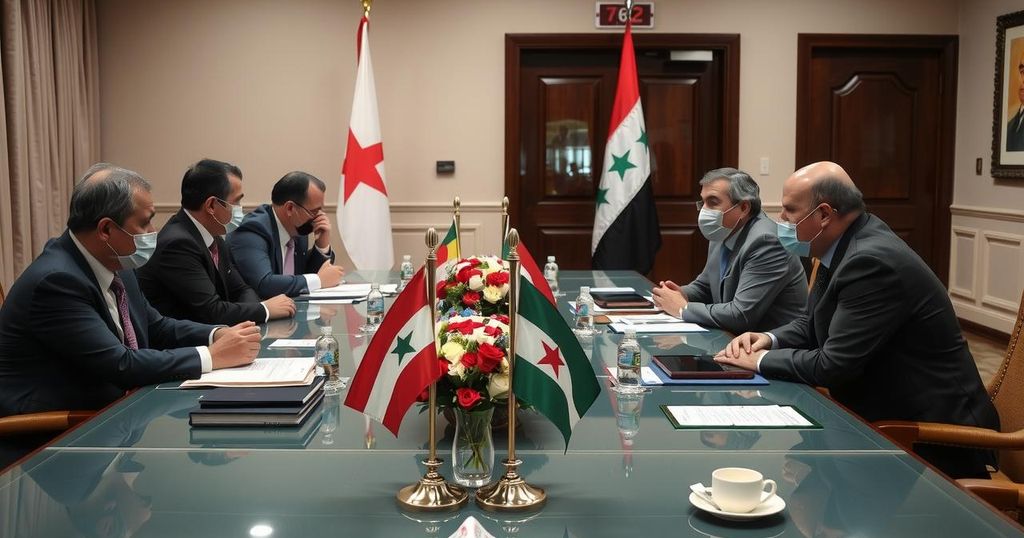Jordan’s Diplomatic Outreach to New Syrian Leadership Marks Strategic Shift
Jordan’s Foreign Minister Ayman Safadi met with Syria’s new leadership, signaling a crucial turning point in regional diplomacy following the fall of the Assad regime. This meeting aims to address security concerns and the ongoing challenges posed by the refugee situation and organized crime along the borders. Jordan is actively pursuing a stable relationship with Syria as part of its broader security strategy.
On December 23, Jordan’s Foreign Minister Ayman Safadi engaged in significant discussions with Ahmed al-Sharaa of Hayat Tahrir al-Sham, following the recent fall of the Assad regime in Syria. This meeting holds considerable importance as it marks Jordan’s first direct outreach to the new leadership, amidst a backdrop of escalating interactions between Syria and various nations, including Turkey and the US. With complex historical ties, Jordan is keen on maintaining its interests and ensuring the security of its northern border, a priority reinforced by the refugee influx during the Syrian civil war.
The Jordanian government underscored its commitment to the stability and integrity of Syria’s territory as part of its broader strategic considerations. This outreach reflects Jordan’s aim to stabilize the border and manage the ongoing implications of the Syrian crisis, particularly in light of past security threats posed by ISIS. With approximately 680,000 refugees remaining in Jordan, historical ties, and persistent drug trade challenges, Jordan’s diplomatic maneuvers are pivotal in addressing regional instabilities.
The U.S. has maintained a military presence in Syria at Tanf, which directly influences Jordan’s security landscape. Given the complexities of the new regime in Syria, Jordan is proactive in reestablishing diplomatic relations to shape its influence in southern Syria, especially in areas like Dara’a. Historical grievances, border tensions, and new security dynamics necessitate Jordan’s vigilant approach to its foreign policy regarding this troubled neighbor. As such, Jordan’s outreach signifies a potential shift in regional alliances and dynamics, reflecting the broader geopolitical landscape.
The article discusses recent diplomatic engagements between Jordan and the newly formed Syrian leadership, post-Assad regime. It highlights the importance of Jordan’s historical and geographical ties to Syria, especially concerning border security, refugee crises, and regional drug trafficking. The Jordanian government aims to stabilize its northern border while keeping watch over the evolving security dynamics following the Assad regime’s collapse. This meeting comes amidst otherArab nations’ outreach to reestablish relations with Syria, indicating a significant turning point in regional diplomacy and alliances.
In conclusion, Jordan’s engagement with the new Syrian government signifies a pivotal moment in regional diplomacy. As Jordan navigates its complex historical ties with Syria, it seeks to enhance security along its borders amidst ongoing humanitarian and security challenges. The proactive stance taken by Jordan reflects broader geopolitical shifts in the Middle East, with implications for regional stability and future diplomatic relations with the emerging Syrian leadership.
Original Source: www.jpost.com




Post Comment